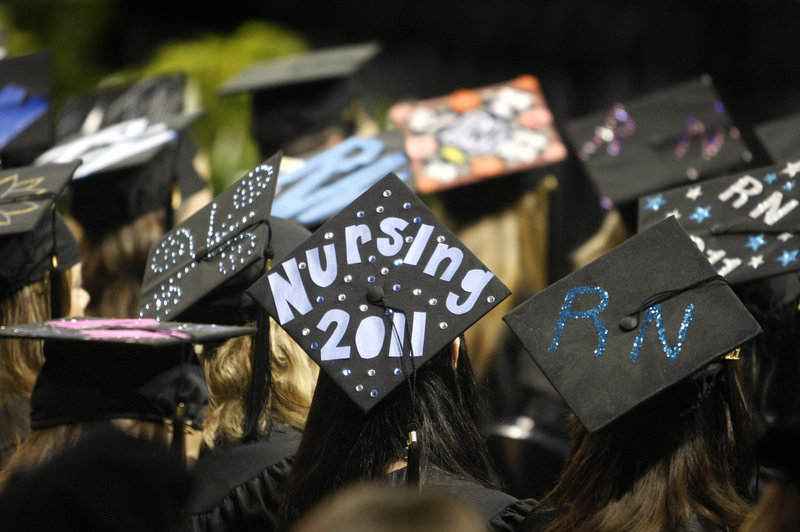BIDDEFORD – Maine’s incomes rank lower than the rest of New England because our work force has the lowest proportion of college degree holders in the region. Earning a degree is a competitive advantage for a job applicant, and for the state where he or she decides to live and work.
That’s why Maine’s colleges and universities are working aggressively to open their doors to students from our state who might not have considered higher education before.
For the past two years, the University of New England has hosted a program on our Portland campus where high school students can visit and explore careers in dental medicine.
We recruit students from throughout Maine with the help of an organization called GEAR UP, which stands for “gaining early awareness and readiness for undergraduate programs.” The goal of the program is to let high school students know that college is a real option for them and that they can get a quality education close to home.
Opening those doors is part of UNE’s mission, and I’m proud that we welcome more than 1,000 first-generation college students to campus each year.
Maine students need to know that higher education, especially during these tough economic times, is worth the investment.
A new Census Bureau study, Education and Synthetic Work-Life Earnings Estimates, shows that education levels had more effect on earnings over a 40-year span in the work force than any other demographic factor, such as race or gender. The estimated impact on annual earnings between a person with a professional degree versus one without a high school diploma was about $72,000 a year.
To help Maine students see the possibilities before them, Maine’s more than 35 public and private colleges and universities work together under the umbrella of the nonprofit Maine Higher Education Council. Our goal:Attract quality students and keep them here to pursue careers in this state.
Maine is increasingly becoming known as a destination for quality higher education. We are no longer the best-kept secret — more than 64,000 students from all over the world attend our colleges and universities.
Recruiting students from around the world helps the state’s cultural diversity and competitiveness. This is important in a state where the population and work force are aging.
But we also want Maine students to know that they have options, too.
The state has seven community colleges that extend throughout Maine — from the southern tip at York County Community College to Northern Maine Community College in Presque Isle. In addition, the state has eight public universities, and 20 private colleges and universities — many that provide online educational programs.
There’s something for everyone here, from associate degree programs to doctoral programs.
Also, Maine colleges partner with business and industry in the state to better understand their needs and match curriculum, ensuring that graduates have the best chance join the work force after graduation in many fields — from tourism to an emerging wind power industry to health care and computer and marine sciences. In turn, these investments and partnerships fuel the state’s economy.
The increased earnings available to UNE graduates over their lives as a result of the education they receive add $216 million in economic impact to the state.
Here in our own state, students can experience a world of opportunities without going far from home.
Our colleges and universities continue to grow and respond to needs of the state. UNE’s College of Dental Medicine, which will open in the fall of 2013, is an example of that. The program is opening the door for Maine students to a challenging and fulfilling career, helping our state to be healthier, and providing a public service to communities that need dentists.
When we hear high school students, like one from Greenville who visited our dental camp, say “Dentistry is definitely on my list,” we know that we are giving our kids a new opportunity to consider.
Our students need quality higher education — and they can get it without ever leaving Maine.
Danielle N. Ripich is chairwoman of the Maine Higher Education Council, a nonprofit consortium of 35 public and private colleges and universities, and president of the University of New England. The university has campuses in Biddeford and Portland.
Send questions/comments to the editors.



Success. Please wait for the page to reload. If the page does not reload within 5 seconds, please refresh the page.
Enter your email and password to access comments.
Hi, to comment on stories you must . This profile is in addition to your subscription and website login.
Already have a commenting profile? .
Invalid username/password.
Please check your email to confirm and complete your registration.
Only subscribers are eligible to post comments. Please subscribe or login first for digital access. Here’s why.
Use the form below to reset your password. When you've submitted your account email, we will send an email with a reset code.